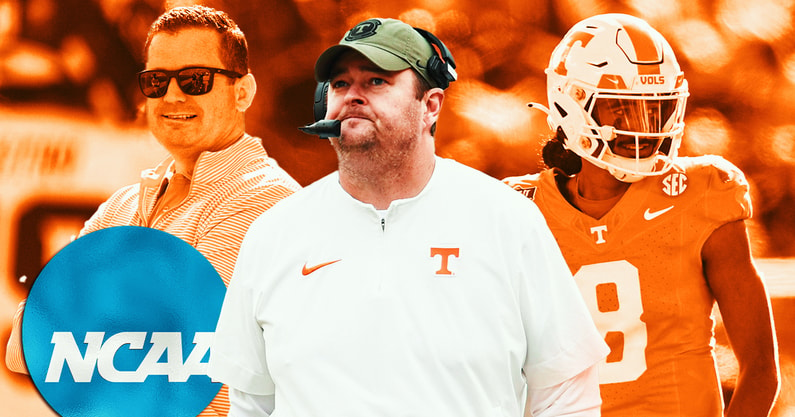Judge schedules call for Tennessee, Virginia NIL lawsuit versus NCAA

Judge Clifton L. Corker granted a preliminary injunction in February against the NCAA in the NIL lawsuit filed by the attorneys general of Tennessee and Virginia. The decision forced the NCAA to halt all investigations into third-party NIL collectives. Nearly nine months later, no settlement has been reached.
In a filing in the Eastern District of Tennessee on Tuesday, Corker ordered a conference call for Nov. 14 at 1 p.m. ET for an update on the lawsuit. The ruling has allowed booster-funded NIL collectives to communicate with high school recruits and transfer portal players.
With the House v. NCAA lawsuit on track to be approved, revenue sharing is set to begin on July 1, 2025. This means institutions can share $20.5 million in revenue with athletes. But with the preliminary injunction still in place in Tennessee v. NCAA, schools cannot limit when athletes enter into negotiations with boosters.
“There will be no penalty for conduct that occurs consistent with the injunction while the injunction is in place,” NCAA president Charlie Baker wrote to schools last March. “I agree with this decision, while the progress toward long-term solutions is underway and while we await discussions with the attorneys general.”
Top 10
- 1New
Coach altercation with fan
Wild ending in Georgetown, Xavier
- 2
Tom Osborne
'NCAA has become somewhat irrelevant'
- 3
Xavier Worthy
Lofty expectations for Arch Manning
- 4Hot
2025 CFB Win Totals
Front-runners for title revealed
- 5
'Where were you?'
Greg Brooks Jr.'s father to Brian Kelly
Get the On3 Top 10 to your inbox every morning
By clicking "Subscribe to Newsletter", I agree to On3's Privacy Notice, Terms, and use of my personal information described therein.
Corker’s decision in February came after the NCAA launched an investigation into Tennessee for multiple alleged NIL violations. According to the New York Times, the NCAA’s search at Tennessee centered around the use of a private plane to fly Tennessee quarterback Nico Iamaleava to Knoxville while he was a recruit, with funds for the plane raised by boosters. Tennessee Chancellor Donde Plowman and athletic director Danny White were vocal supporters, along with multiple politicians, of taking legal action.
Winning the lawsuit would leave the NCAA powerless in governing NIL in college sports, which is why the lawsuit does not have a conclusion yet. At its core, the lawsuit is an antitrust case. Corker has already written in his temporary restraining order decision Tennessee and Virginia are likely to succeed on the merits of their claim under the Sherman Act.
Since the preliminary injunction, the NCAA has been granted multiple time extensions to respond to the attorneys general of Tennessee and Virginia.